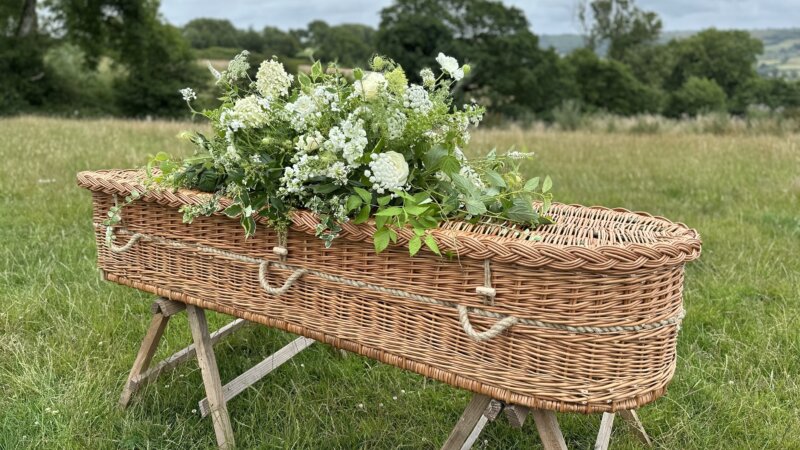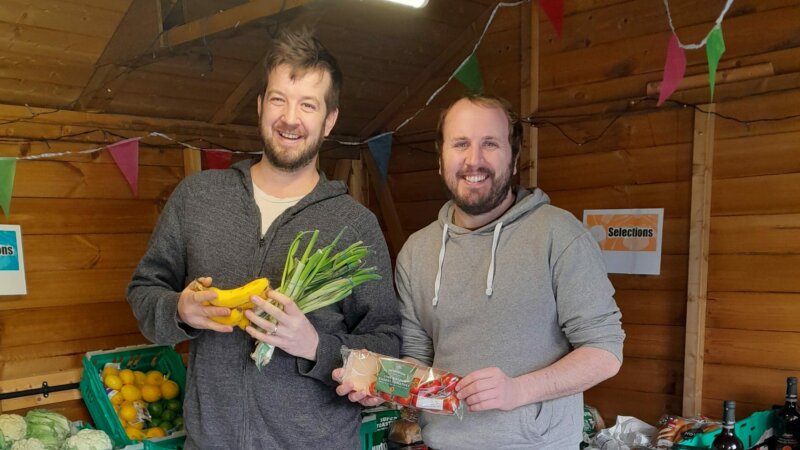Herbs: Experiential ecology
The antibiotics that were hailed as wonder drugs in treating infective illness are beginning to fail us. Bacteria have become resistant to them much more quickly than expected. What has been discovered is that bacteria can learn about antibiotic substances to which they are exposed and can shift the nature of their genetic make-up in response. In doing so they not only adapt so that they are drug-resistant, but they do so in an inheritable manner. Further to this, we now know that bacteria can share this learned information and adaptive behaviour with other individuals and with completely different species of bacteria. This means that infective organisms can be resistant to drugs that they have never encountered before.
This process has been accelerated by the over-use of antibiotic drugs in treating human beings and their routine use in farm livestock. These chemicals exist in soil and groundwater, in streams and rivers, where they not only affect other organisms, but increase the likelihood of bacterial populations learning about them.
Many other medicinal drugs also end up in bio-active forms in the soil and water, either directly from manufacturing site pollution, via farm animals or via sewage. The environmental effects of some are well documented – for example, the disrupting effects of the contraceptive pill on wild fish development and reproduction. Other examples are less well known.
Selective serotonin reuptake inhibitors (SSRIs) are a group of drugs used mainly in the treatment of depression. They affect brain levels of the neurotransmitter serotonin. Millions of pounds worth of these drugs are consumed annually and their effects persist for some months as they make their way through the environment. Serotonin is an important chemical messenger in the human brain and within many species of plants and animals. This is a reflection of the fact that there are a lot of commonalities between the chemistry and metabolic pathways of plants and animals. SSRIs are active in tiny amounts and environmentally may cause a wide range of disruptions to plant and animal sexual maturation, reproduction, root and brain development.
Gradually we are realising that we need to be more aware of not just the unwanted physiological side effects of medicines upon ourselves, but also of their effects upon the environment.
Many modern drugs were originally based upon chemicals found in plants. Aspirin, for example, was one of the first drugs to be synthesised artificially. This drug is a form of the salicylic acid which occurs in willow bark and meadowsweet. Although some modern medicines are based on plant chemicals, herbal medicines in their whole form have been gradually phased out of the mainstream pharmacopoeia over the last 150 years. The use of plants as medicine has been perpetuated by amateur self medication and by professional medical herbalists.
Some plants alter human physiology very quickly, but most tend to work slowly and safely. To refer back to the example above, in its pure form aspirin is associated with side effects including stomach irritation and inflammation, whilst the herbs from which such chemicals were originally isolated are not. Plants contain dozens of different organic compounds and they often interact with each other in such a way that the dangerous ones are made safer. The isolation of one plant compound from a herb often increases the side effects associated with its use.
Whilst at one time herbalists might have argued that herbs are safer and therefore better than all pharmaceutical drugs, today they take a more pragmatic view. There are situations in which one or the other would be the better choice for a patient. But given the problems associated with pharmaceuticals mentioned above, it might be a good moment to re-evaluate the benefits of old fashioned herbal medicine.
There are a wide range of plants that are effective anti-infective agents, some working to boost the immunity of a patient and some acting directly as anti-bacterials. In using plants as sources for drugs, pharmacologists have always tried to find the one most effective constituent chemical, but plants have developed a complex armoury of agents to protect themselves from the bacteria with which they have evolved, and this complexity makes them more flexible as bacteria continue to change. Environmental degradation and assimilation of plant chemicals is a natural process, so there is less danger of pollution from herbal medication.
The production of many modern medicines is also dependent on the oil industry for raw material (crude oil = geologically processed plants), which will become more expensive as supplies dwindle. The pharmaceutical industry has run out of wonder drugs and is beginning to look for complex acting agents that affect more than one disease process, which is what herbs do.
The word doctor comes from the Latin ‘docere’, to teach. Whilst herbalists may not have the appellation ‘doctor’, they do try to disseminate information. Seeing a herbalist for treatment involves a conversation and education about how a person can best help themselves. Herbalists are also keen to lead walks and teach evening classes, to keep alive the old folk medicine for when the oil runs out. Using herbs as medicines is a way of connecting with the co-evolution of plants and animals. It’s experiential ecology.
Herbalist Sarah Golding is leading two workshops at The Energy Centre, Heeley City Farm on 7 February and 7 March, 10.30am till 2.30pm. Contact Sarah on mossystone@hotmail.co.uk or 07980 317063 for more information.
Bendle is a medical herbalist who has been working and teaching in Sheffield for the last 25 years. He has been involved in several initiatives to make complementary medicine available to people on low incomes. )





